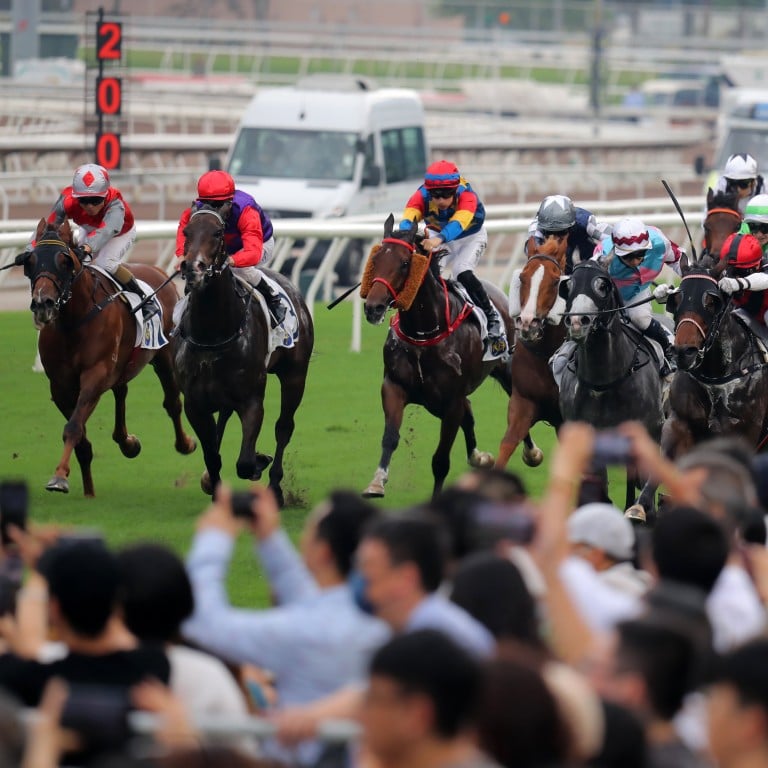
Letters | Hong Kong Jockey Club could get off its high horse with fractional ownership
- Readers discuss how to revive interest in horse racing, reasons for the rising divorce rate, and an office fit for a former leader
I would like to propose fractional horse ownership as a viable means of encouraging horse ownership in Hong Kong, one that is justified from the perspective of both the owner and the club.
The club can open up fractional thoroughbred ownership to the public. The fractional ownership or investment model has been in robust operation in Japan, Australia, the United Kingdom and the United States. By dividing the ownership of a horse into 20-4,000 shares, the experience can be made very affordable and invite interest from the general public, increasing the public relevance of the club and the sport.
Being a fractional owner of three British racehorses, I can personally attest that the investment is profitable, and can bring like-minded individuals together, making it a fruitful and enjoyable adventure for young adults who are interested in the sport, with considerably lower costs and risks.
From the perspective of the Jockey Club, I understand the proposition of a fractional horse ownership scheme can be tricky, as it might undermine the current exclusivity of horse ownership. A solution would be to create a tier of Jockey Club membership for fractional owners, who would not share the same privileges and rights as full members or racing members. This would be similar to what the HKJC Priority Card is already doing.
The Jockey Club could also consider establishing a fund which includes shares in various local racehorses, as it would raise money for owning horses, and high-quality thoroughbreds promise mouth-watering returns.
Given that the club is trying to attract interest in horse ownership, the main goal should be to increase the sources of revenue, instead of merely reducing expenditure. Paired with the fact that betting turnover has been declining, it is high time for HKJC to get off its high horse and de-gentrify the sport of horse racing, or those who wager, or follow the sport, will turn to other markets that promise more involvement.
Matt Chan, Yuen Long
Education key to bringing down the divorce rate
Why marry at all? Ancient cultures had the answer. The purpose of the union of man and woman was to give birth to a new generation and educate them so as to propagate the moral and spiritual values of that culture.
The goal of humanity has been to live peacefully in harmony with our neighbours and nature. However, there has been overemphasis on material growth and the subtle cultural values have been compromised.
What is the solution? The right education at the school and college level seems to be the answer. The youth need to be convinced of their responsibility to mother and father a new generation. Our future is in their hands and this awareness alone shall call forth total transformation.
May we look forward to new educational tools and not be carried away by the dazzling glamour of artificial intelligence.
K.P. Daswani, Mid-Levels
Questions for Carrie Lam on her taxpayer-funded office
I am glad lawmakers are questioning the necessity of such an absurd request. We will all have opinions as to Lam’s “status” and can think of what appropriately aligned office accommodation should or should not be. An important question to ask is what work Lam will actually be undertaking on behalf of residents of Hong Kong.
Will foreign dignitaries actually want to engage with Lam and will our current chief executive want to take the risk of Lam undermining all his hard and productive work to get Hong Kong back on its feet? Surely there is a nice room in Government House that she could use occasionally? Why does Lam need a chauffeur when Hong Kong has the best public transport in the world?
As Hong Kong tightens its belt, the request for millions for Lam’s office and staff is absolutely flying in the face of what she deserves and requires versus the needs of so many residents desperate for housing and a reasonable quality of life. Such a shame but in arrogance she has no equal.
Simon Constantinides, Sai Kung

